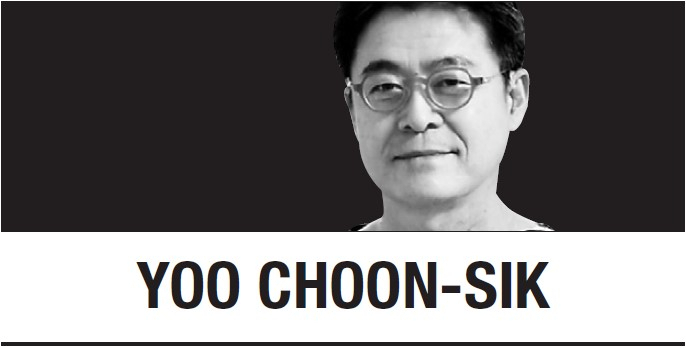
In countries like South Korea that adopt the presidential system of government, the president can wield much stronger power than the prime minister under the parliamentary system because the president usually rules for a fixed period. Accordingly, comments by the president or presidential officials on specific issues can carry a much stronger and wider impact on people’s lives as well as financial markets.
At the same time, their comments sometimes have a different type and magnitude of impact on people’s decision-making than intended. Given this problem, it is recommended that presidential officials -- not to mention the president himself/herself -- be extremely careful when commenting on sensitive issues, or just avoid commenting altogether.
Monetary policy is the most typical area where officials outside the central bank, or just anyone not authorized by law -- usually refuse to comment and are advised not to because it belongs wholly to the central bank by law and is one of the bluntest policy tools affecting the economy indiscriminately, with effects that are hard to predict in the short term.
In this respect, comments that a senior presidential official made late last week on the Bank of Korea’s interest-rate policy are seen as inappropriate and undesirable. The unnamed official was widely reported as describing market expectations on the timing of rate reductions in the United States and South Korea.
The official said they expect the Bank of Korea’s monetary policy board members to decide interest rates based on comprehensive consideration of trends in the real estate market, household debt and other issues. On the surface, the official appears to be making comments in a neutral manner based on principles applying to central bank policymaking.
The official did not stop there but said there seem to be expectations formed in the market that August will likely be too early for the monetary policy board to carry out a rate cut and that October is more likely timing. The official’s comments denote many problems.
First of all, the official listed trends in the real estate market and household debt as some of the issues that the monetary policy board will likely consider when reviewing interest-rate policy. There are numerous factors that the monetary policy board considers when reviewing the country’s interest-rate policy and assessing the South Korean economy’s conditions.
In that sense, it is natural that the trends of the real estate market and household debt are among the factors to consider. But pointing to these two among many factors carries a signaling problem because it could sound like pressure on the board not to lower interest rates so that potential real estate buyers can be discouraged from borrowing money.
The comment is also problematic from the financial market participant’s perspective. Let’s imagine the central bank’s monetary policy board decides to keep the interest rate unchanged at 3.50 percent at its next meeting on Aug 22 based on its independent assessment of all factors influencing the country’s economy and financial markets.
Some market participants may think the monetary policy board reached such a decision after considering the presidential office’s intention expressed through such comments, while the board may have reached the same conclusion without any outside comment. In other words, the relationship between the market and the central bank could be distorted or complicated by this intervention of outside players.
Regarding the real estate market and household debt, which is closely influenced by housing prices and transactions, the official’s comment came soon after remarks that the government was concerned about rising housing prices in some areas, especially in the capital region.
The official said the government was preparing measures to curb the housing market, aiming to announce them before Aug 15. This remark, along with comments on the monetary policy board meeting set for a week later, can be seen as aiming to influence public opinion and expectations toward monetary policy.
While central bank independence is a globally accepted economic truth these days, it took a huge amount of effort around the world for a long time. It is valuable for ensuring that monetary policy is conducted in a way that is consistent with appropriate central bank objectives and free of political influences.
For those outside the central bank, especially those with political influence or holding current political posts, the best way to respect central bank independence is to stay silent and leave the central bank alone. Even making comments supporting central bank independence -- on the surface -- usually does more harm than good.
We should all bear in mind that once the central bank loses its independence or the people’s trust in its independence, the cost of monetary policy will rise, and everyone will pay the price.
In South Korea, the Bank of Korea had long been under the effective control of the government, and we all remember how badly the country’s economy was managed during the era in which the country’s monetary policy was almost directed by the government, which is by nature driven by political considerations.
Yoo Choon-sik
Yoo Choon-sik worked as the chief Korea economics correspondent at Reuters and is now a business and media strategy consultant. The views expressed here are the writer’s own. -- Ed.







![[Herald Interview] How Gopizza got big in India](http://res.heraldm.com/phpwas/restmb_idxmake.php?idx=644&simg=/content/image/2024/11/20/20241120050057_0.jpg)